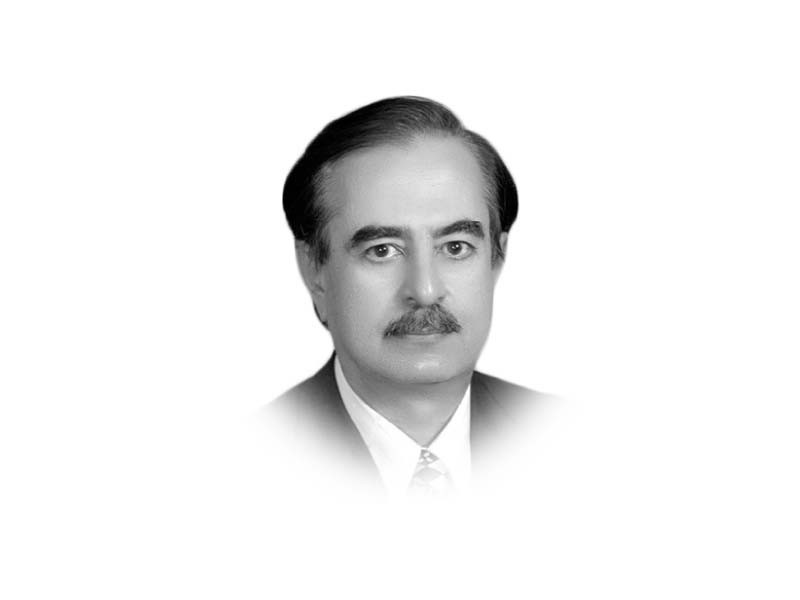
Democracy claims no perfection. Nor is it the ideal state since that, Plato held, is rule by the most able, the philosopher kings. But man being predisposed to aggression, power and avarice, there is little guarantee against the guardian becoming another Caligula.
But Montesque solved the riddle. Rather than aspiring for the unachievable, he posited two practical political objectives:
Firstly, introducing controls over the exercise of unbridled power so that society does not descend into intolerable authoritarian despotism, the worst form of government where life, freedom, honour and property are in constant peril. This requires absence of authority in one or a few hands besides ensuring fixed job tenures.
Secondly, to devise a political system which keeps the worst drives of human nature under control converting them, through a combination of a law- based polity, acculturation and education, into channels that lead to improvement of the human condition, both individual as well as social.
Thus Aristotle, Locke and Montesque averred that democracy approximates to the best of disagreeable forms of government — an unworthy description, yet mundane and realistic. Democracy, left untrammeled, passes the test of time.
The challenge is how to improve a polity through institutional checks and balances and the rule of not men but laws.
Democracies that today are held up as paradigms of law abiding, developed societies, did not evolve suddenly nor was basic human nature any different in those societies from that common among all mankind.
It was through gradual accretions to the size of the economic surpluses, a bitter struggle, often involving revolutions and beheading of monarchs, for a voice and place in the power structure by the lower and middle classes, the evolution of strong institutional checks and balances on concentration of power, the growth of a law-based polity that penalised all and sundry for malfeasances, that has led to the emergence of modern advanced democracy.
Hoping for a utopian state, in the rough and shove of everyday life of human ambition for material gain and power, particularly after the population, the knowledge and scientific revolutions, rule by one or few is rarely not prone to absolutism descending into despotism which is only a notch better than animal existence.
But democracy, being rule by the commonality, is not immune to vagaries of emotions humans are prone to: aggression born of the drive to survival, fear, avarice, libido, acquisitiveness of wealth and power.
How best to keep such natural instincts in check while preventing autocracy from evolving needs a political system that spreads power among three arms of the state: the executive, legislature and judiciary to create a system of checks and balances preventing governance turning absolutist. The press is the modern day fourth estate.
And secondly, but equally importantly, is not allowing the state to be run on the discretion or caprice of one person, to function strictly according to laws equally applied to all its citizenery. Democracy is thus essentially a rule- based system of government that attempts to reduce to the minimum the element of the human whim from politics, making it subservient to impartial laws.
Two questions are often raised or discussed in our context. One, the suitability of parliamentary democracy as a system of government for Pakistan given that not much progress has been made, in the economic, material or social fields over the years, when such democratic dispensation prevailed, although much compromised by non-democratic forces. And two, that democracy provided avenues for the inexperienced and urban parvenus and uninitiated rural wealthy, steeped in the ethos of a typical rentier absenteeism, during both military and civil regimes, taking part in politics not so much for public service as political and personal aggrandizement. In rural Pakistan landlordism and political status is used for dispensing state services like electricity or gas or road connections, building support through patronage, nepotism and corruption.
Democracy envisions dispersal of power among various state arms. It presupposes exercise of authority through societal and political consensus and compromises rather than exclusive uni- centric decision-making. In a federal Pakistan with cultural, historical and lingual diversities processing varied regional perspectives and aspirations, the need for a balance between an effective Centre and strong regional autonomy is self-evident.
The 1973 Constitution, which has held together, over fifty years, the four provinces in a mutually agreed bond, holds legitimacy since it partakes of these very essential features. The civilian politicians, though much maligned, yet this one historic achievement places them on a much higher pedestal than all military governments, in keeping the federation legitimately together.
Ignoring these prerogatives of consensual national life and democracy led us to break up as a country.
That democratic norms have not matured is explicable by comparison to our neighbours. In the quest for an enforced unity, opportunity was not afforded to sustained, unmanaged civilian and party political growth. Nor was education given priority. Political instability, mainly occasioned by political manipulations, led to hamstringing economic development. Economic growth was socially lopsided, tilted towards rentierism and elite capture. These widened economic gulfs creating breeding grounds of alienation and emotionally inspired explosive populist politics that is today proving a danger to freedoms and democracy.
The virus of political, financial and economic corruption or gain through wrongful use of power is not confined to any single country, region or continent. Instances of misuse of power span Mesopotamia, the Chinese and Greeco-Roman civilisations, Islamic Caliphates, the Mughal era and East India Company. The Mughal Jagirdari system created order yet spewed a political culture of status feeding on forced extractivism and pernicious patronage that choked merit and effort.
During much of pre-modern Britain instances of sale of posts of judges, levy of arbitrary personal taxes and creation of pocket burrows were not uncommon. The US witnessed its corrupt Tammany Affair, gerrymandering, the prohibition period and present day corporate party fundings. China, India, Asia and Africa suffer from varying degrees of corruption. Yet economic growth in many of these countries continues unabated.
More and not less rule bound democracy, as an antidote to corruption, proves more rather than less effective although the record of corruption by military generals is no more reputable. In rule of law, education, periodic peaceful changes of government and absence of extra democratic engineering lies our future. Democracy is imperfect yet inevitable.
Published in The Express Tribune, November 15th, 2022.
Like Business on Facebook, follow @TribuneBiz on Twitter to stay informed and join in the conversation.


1725784957-0/Tribune-Pic-(17)1725784957-0-165x106.webp)
1724760612-0/Untitled-design-(12)1724760612-0-165x106.webp)









COMMENTS
Comments are moderated and generally will be posted if they are on-topic and not abusive.
For more information, please see our Comments FAQ